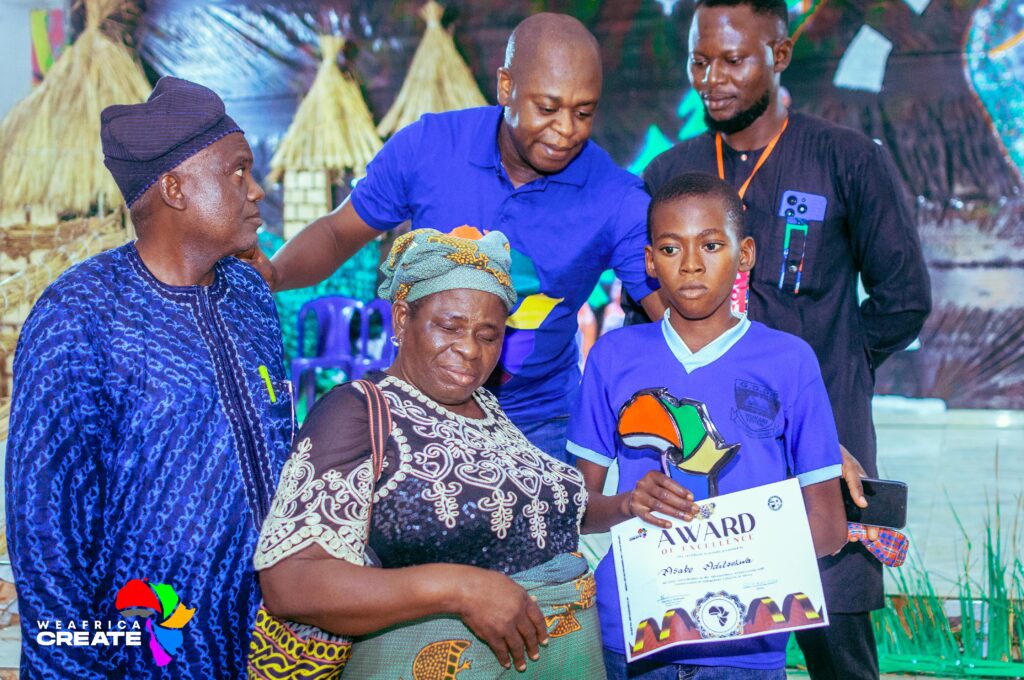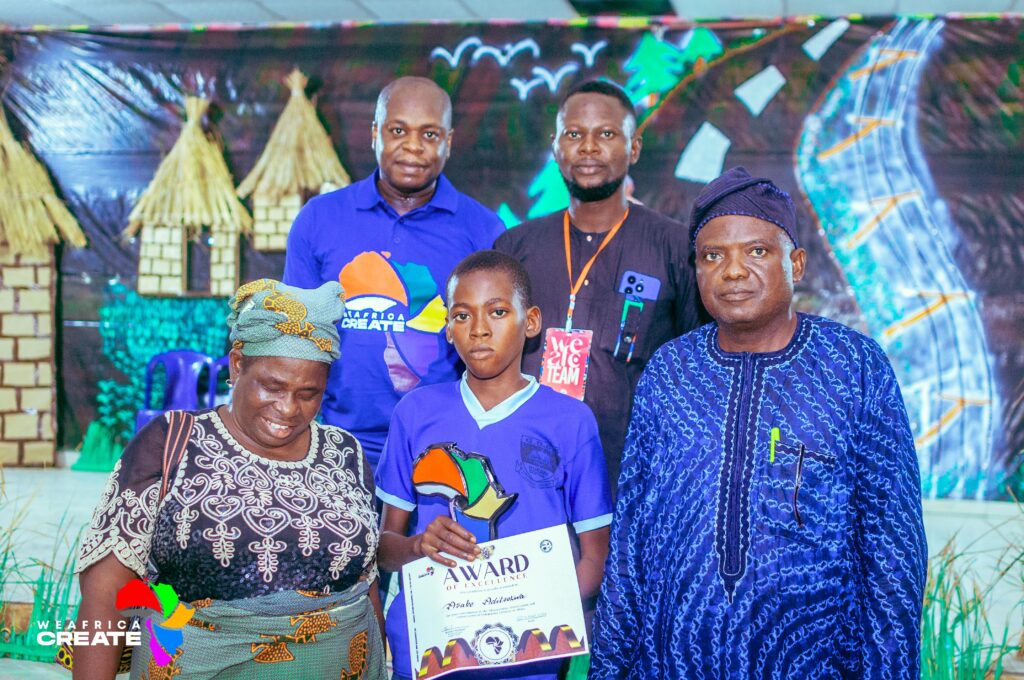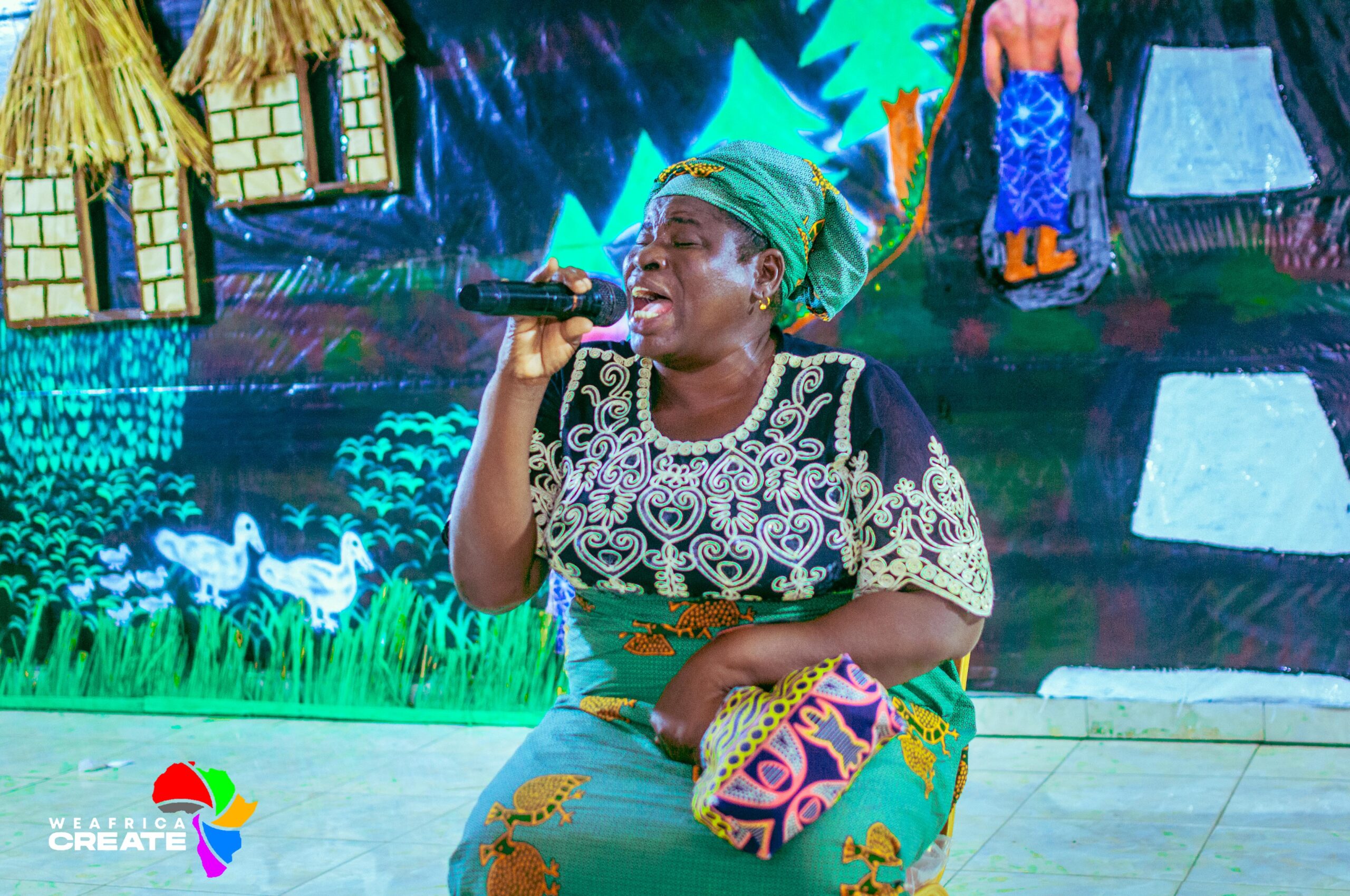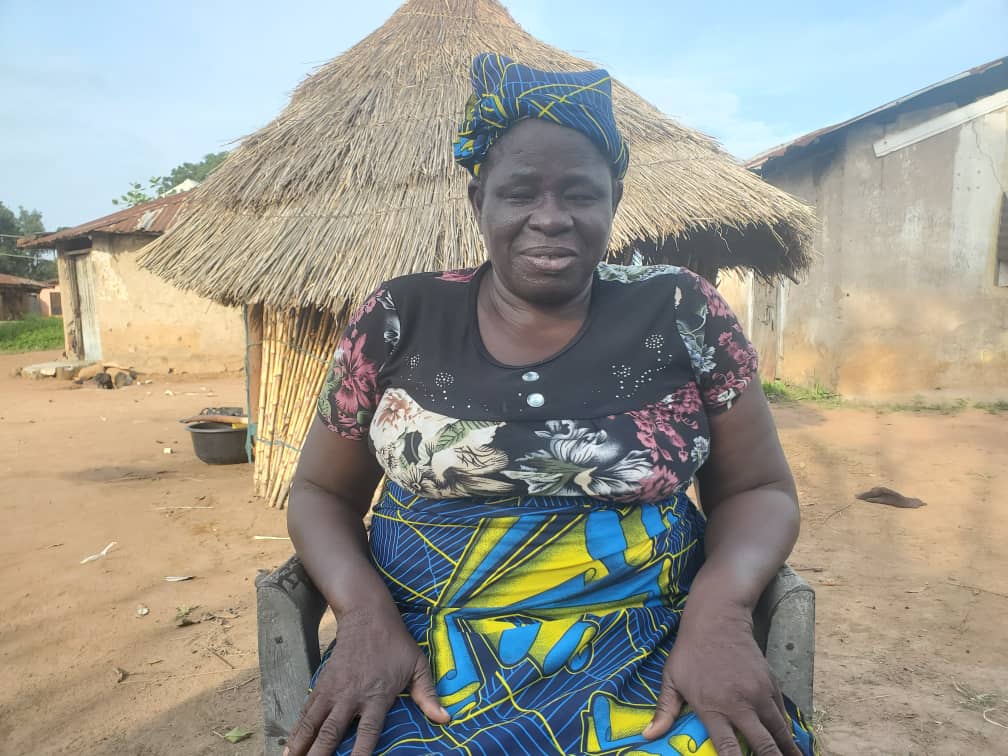
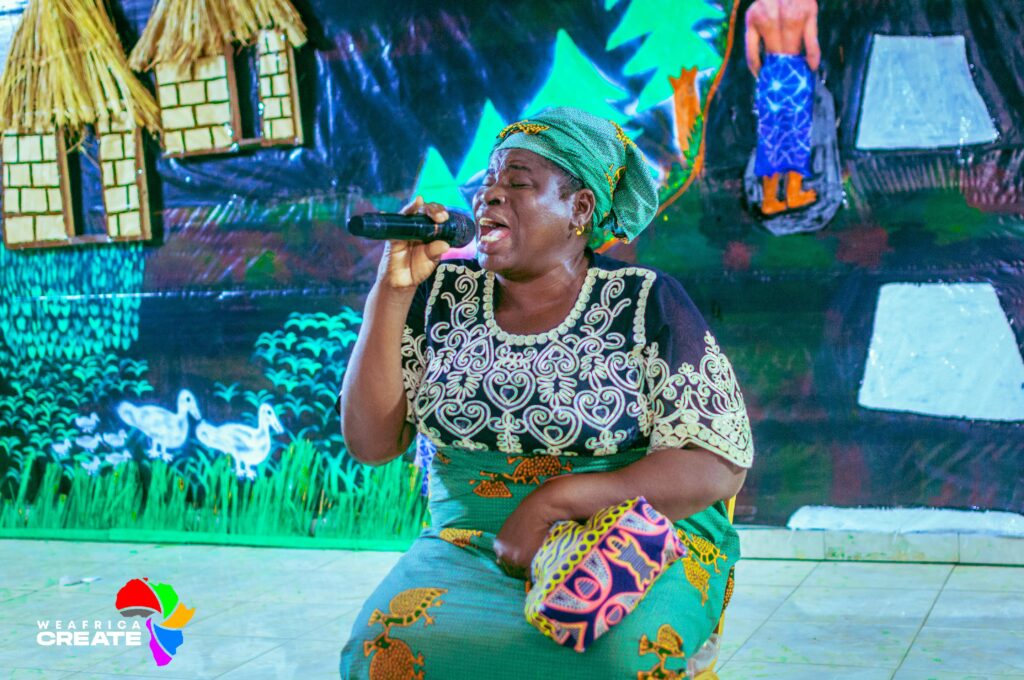
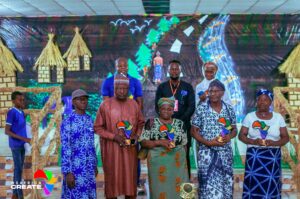
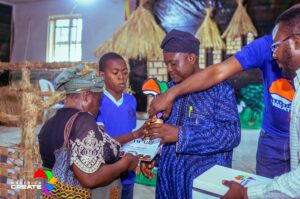
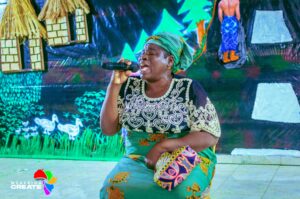
Asabe Performing at TAHRIFF Children Cultural Event
By Cynthia Ganchok
WUKARI, TARABA STATE – Sitting in front of a thatched hut in her native Wukari, her smile is as warm as the late afternoon sun. Her name is Asabe — a woman born without sight, yet blessed with a vision far greater than most: the power to carry the ancient songs of her people across Nigeria.
From infancy, Asabe’s voice drew attention. Relatives recall how, before she could walk, she would hum melodies in perfect rhythm to the traditional keku — a stringed instrument central to Jukun music. That early gift set her on a path that would transform her life and make her a rare cultural ambassador of the historic Kwarrarafa Empire.
Over the years, Asabe has toured many states in Nigeria with the Keku Music Troupe of the Jukun people, performing at festivals, cultural exhibitions, and state functions. Her music blends haunting melodies with storytelling, preserving centuries-old traditions while evoking pride in her heritage.
Despite being blind from birth, Asabe navigates life — and the stage — with confidence. “The keku tells me where I am,” she often says. “Its sound is my eyes.” Her performances are more than music; they are living archives of the Jukun people’s history, their struggles, and their triumphs.
Today, her story has found a powerful ally in TAHRIFF — the Taraba Human Rights International Film Festival. Through its advocacy for inclusion and the rights of virtually challenged creatives, TAHRIFF has spotlighted Asabe’s artistry on local and international stages. The festival not only promotes her music but also works to ensure her rights and dignity are protected as a person living with disability.
For Asabe, this support is more than recognition — it is empowerment. With TAHRIFF’s backing, she now has opportunities to reach new audiences, record her works, and inspire young people, especially those with disabilities, to embrace their gifts and heritage.
Her role is not only artistic but symbolic. As a woman, a person with disability, and a custodian of indigenous music, she bridges generational and cultural divides. In an era where many young people are drifting from their roots, Asabe stands as a reminder that heritage is a treasure to be preserved.
For the Jukun and the larger Kwarrarafa cultural bloc, she is more than a singer. She is a messenger — carrying songs that have echoed across the Benue plains for centuries, ensuring they will not be forgotten.
Asabe’s journey continues, and with every note, she reaffirms an unshakable truth: blindness may limit sight, but it cannot dim the light of a voice destined to be heard.
